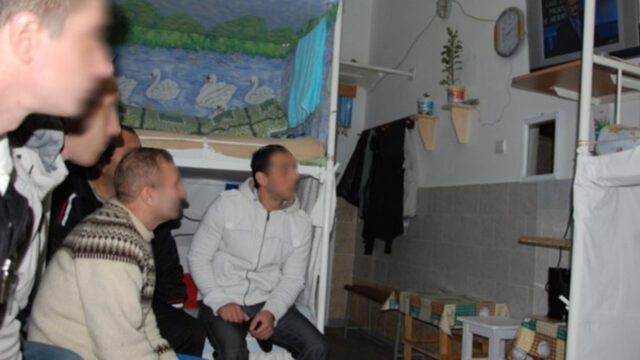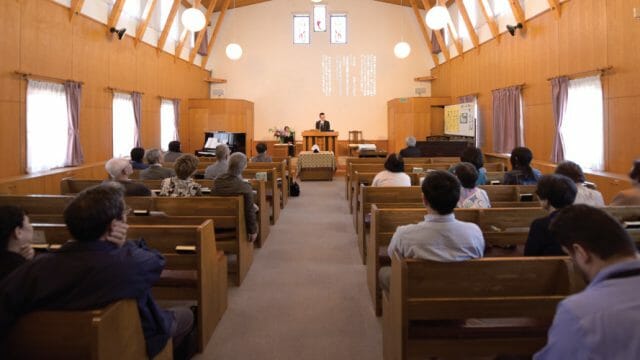Jesus’ example provides the blueprint for how He expects us to treat people.

God smiled, remembering the sheer joy of shaping Adam’s perfect body out of clay. Now His loving fingers were sculpting Eve, a perfect woman made from Adam’s flesh. It was not enough to speak His children into being, like the rest of creation. God wanted to make them with His own hands, impress His own image on their hearts, and create them for loving relationships. They were equal and complementary. They would care for each other, their family, and all of creation (see Gen. 1:26-28).
We are all equally precious to God, created to live in harmony with each other, blessing each other, being humble, lifting each other up, and protecting each other, regardless of age, gender, ethnicity, or any other difference. No human being is more important than any other. No one is entitled to put others down, abuse them, hurt them, or control them.
For thousands of years, through pride and selfishness, many have misused their power and opted for oppression, coercion, abuse, and violence. Children, women, “outsiders,” and other vulnerable people are most at risk. But destructive and devastating imbalances of power are not part of God’s plan, whether the power is between master and slave, Jew and Gentile, adult and child, or man and woman. Those who wield power over others are often motivated by pride, greed, selfishness, violence, and lust. Worst of all, they misrepresent the unselfish, loving, and protective character of God.
The Jesus Paradigm
Jesus was born into a world broken by those who had misused their spiritual, physical, emotional, and intellectual powers. He came to move relationships toward the loving mutuality that God originally intended, putting things right again, healing those who are broken; lifting up those who are crushed; and showing us how to live with servant hearts. All of His social interactions were infused with love, joy, peace, patience, kindness, goodness, faithfulness, gentleness, and self-control (Gal. 5:22, 23).
When the woman caught in adultery is thrown at His feet like a bag of garbage, He writes, and carefully erases, a series of private comments in the sand, showing respect for everyone’s dignity. He accepts her, forgives her, and turns her world around. For what may have been the first time in her life she understands what it means to be truly loved.
Jesus goes out of His way to meet a Samaritan woman drawing water from a well in the noonday heat. Jews looked down on Samaritans, and the Samaritans looked down on her. But Jesus refuses to judge her, or to abuse His position as a male Jew. He chooses to become vulnerable, and simply asks her for a drink of water. She is startled by this man who treats her with gentle dignity, even though He knows the darkest secrets of her heart. As they talk she regains her value as a human being, secure in God’s love, and leaves with the confidence to evangelize her entire town (John 4:1-42).
Jesus is jostled by a woman who has bled for many years. She’s exhausted, impoverished, and downtrodden. She believes her only hope is to touch the hem of Jesus’ robe and disappear into the crowd. Jesus senses the cry of her heart and the faith in her touch. He holds His power humbly. He doesn’t say ‘I healed you.’ He says her faith has healed her (Mark 5:34). He restores her dignity as well as her health.
A widow shyly drops two pennies into the offering box and hurries away. But Jesus notices. In a voice just loud enough for her to hear, He expresses his deep appreciation for her faithful generosity. She walks away, tears in her eyes, knowing she is more precious to God than all the money in the world.
Overwhelmed by love and gratitude, Mary pours perfume over Jesus’ feet. When Simon and Judas use the moment to shame and insult her, Jesus silences them. He will not tolerate their prideful attitude or verbal abuse. In sharp contrast to their cruel cynicism, Jesus speaks kindly and eloquently. He publicly honors Mary and firmly puts the abusive men in their place. He invites us to speak out and follow His example.
Imitating Jesus
Jesus showed deep respect for women, children, lepers, tax collectors, and Samaritans. He welcomed them warmly. He lifted them up when society broke them down. He would not tolerate anyone’s superior and hurtful attitudes toward any of His created children. He spoke up and spoke out to defend the vulnerable, even when His was the only voice. He used His power to rebalance a world infused with Satan’s continual hunger for superiority.
Proverbs 31 describes a noble woman. She is proactive in her home, her work, and her community. She is respected alongside her husband. She runs several businesses, but she is humble and caring enough to rise up early and make food for her servants. There is also a backstory: her husband honors her and calls her blessed. Whenever someone is empowered and uplifted, the encourager is blessed, the uplifted person is blessed, and the entire community around them is blessed.
Paul summarizes Jesus’ way of treating people: “Be devoted to one another in love. Honor one another above yourselves” (Rom. 12:10, NIV). When we misuse our power and disrespect others we fall much lower than those we’re pushing down. But when we follow Jesus’ example of loving and respecting others, we’re all uplifted, and we grow closer to God’s original design for all of our relationships.
Uplifting Relationships
As you meet people in your everyday life, notice your response to them. Reflect on your thoughts, challenge them, and act in ways that lift up those around you.
Do you feel superior to those you are with? If so, where has this idea come from? Why do you feel this way? How can you see others as equal to you in the eyes of God? How might you take a step down, like Jesus, and lift them up?
Do you feel inferior to those you are with? If so, where has this idea come from? Why do you feel this way? How can you see others as equal to you in the eyes of God? What might Jesus say or do to lift you up again?
How can you see every person you meet as a fellow human being made in the image of God, worthy of your love, respect, support, and protection?
What can you do to lift up those who are downtrodden in your context, just as Jesus did in His?







